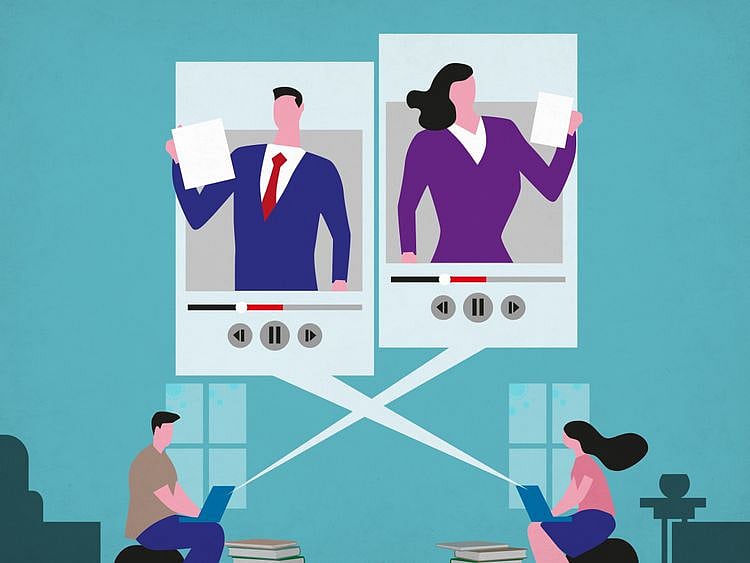Satisfactory is not a word that the UAE characterises itself by. It is a nation that is constantly seeking ways to renew itself by encouraging innovation across all sectors.
One industry that has contributed heavily to this — and continues to raise the bar — is education. It has utilised the tools and resources that shape today’s society.
From incorporating smart infrastructure in schools to augmenting higher education with technology, the UAE has proven that its education sector is well-equipped to tackle what some countries may deem to be a challenge: distance learning.
To truly grasp the UAE’s ability to adapt with circumstances that may leave students with only the option of virtual study, it is crucial to realise that this ability is a consequence of years and years of preparation. Had it not been for that preparation, we would not be able to successfully mitigate the challenges imposed by the current health situation. In a time where mass gatherings should be avoided and remote working encouraged, possessing the infrastructure to maintain education continuity is a blessing.
This infrastructure and the successes it drives has local, regional and global impact. It reinforces the UAE’s reputation as a global pioneer in innovation and entrepreneurship. The nation’s ability to adapt rapidly to changes has been exemplified now, more than ever, through the successful adoption of distance learning and remote work technologies. This is, yet again, a reflection of the UAE’s readiness and preparedness in developing the right infrastructure and nurturing the right talent that can rise above exceptional circumstances.
The education sector has contributed to this through several key initiatives. In October 2018, the ‘Madrasa’ e-learning platform was launched by the Mohammed Bin Rashid Al Maktoum Global Initiatives (MBRGI). It provides free educational content to millions of Arabic-speaking students not only residing in the UAE, but around the world. This platform complements and supports the Distance Learning initiative, which the Ministry of Education launched this month.
Universities in the UAE have also launched several successful initiatives of their own that contribute to this e-learning-ready ecosystem. For instance, the Higher Colleges of Technology (HCT) successfully implemented a remote study test phase for all its students. Student registrations amassed to 24,000, enabling them to remotely attend lectures using ‘Blackboard Learn’ and visual communication technologies.
Virtual classrooms and best practices
In addition, Zayed University implemented the use of ‘Adobe Connect’ to facilitate a holistic, integrated virtual learning experience for its students. Ankabut, the UAE’s advanced national research and education network that is run in full by Khalifa University of Science and Technology, announced that it is fully-prepared to support in ensuring that it is successfully adopted and maintained nationwide.
Universities located in Dubai International Academic City (DIAC) have proactively set up virtual classrooms, utilising a range of applications and programs to implement best practices. Some have partnered with digital media experts to ensure that their remote learning infrastructure meets the highest industry standards.
I wholeheartedly believe in the well-known idiom that necessity sparks invention and innovation and the way these universities have reacted to current circumstances is a testament to that. However, even after we get through this tough period, we will continue to encourage the adoption of e-learning technologies due to the benefits that come with them, such as the ability of students to make up for missed classes and the opportunity to engage with and support other students at all times.
Regardless of the reasons that drive transformation in the UAE and across the world, distance learning does not only aim to maintain the provision of education, enhance the level of learning and inspire independent study, it also facilitates a wide choice of educational courses that are accessible at all times. That is why it is an education imperative that must continue to be adopted and improved upon for it might become the nucleus of the education system.
I am confident that we will witness positive experiences resulting from distance learning. Positive experiences that enable the development of talent that is capable of tackling future issues, capable of successfully leading businesses through tough times, capable of innovating and coming up with creative ideas and solutions and capable of contributing towards the betterment of our societies.
Positive experiences that enrich the educational system by leveraging academic competencies and resources from around the world, without facing the challenges that geographical limitations provide. Positive experiences that promote knowledge exchange and broaden students’ horizons, giving them the ability to utilise the wealth of knowledge available at their fingertips.
Fully-integrated ecosystem to create knowledge
The UAE’s education model is a subset of a wider model that is driven by a vision to develop a fully-integrated ecosystem that creates knowledge. An example of that is the support that the technology and telecommunications sectors have provided. The contributions of global technology companies operating in the UAE are aplenty and can be tangibly witnessed through the free-to-use solutions that they have developed to help students and businesses conduct meetings remotely. In addition, local telecommunications companies have provided free virtual meeting services for companies and organisations.
This spirit of collaboration is what makes the UAE and its ecosystem special. It is a reflection of the gratitude and affinity that individuals and companies have towards the UAE, acknowledging that they too play an integral part in its ongoing success story. Let us come together to ensure that our community is never deprived of their mental nutrition: education.
— Mohammad Abdullah is the Managing Director of Dubai International Academic City and Dubai Knowledge Park
Sign up for the Daily Briefing
Get the latest news and updates straight to your inbox
Network Links
GN StoreDownload our app
© Al Nisr Publishing LLC 2026. All rights reserved.
